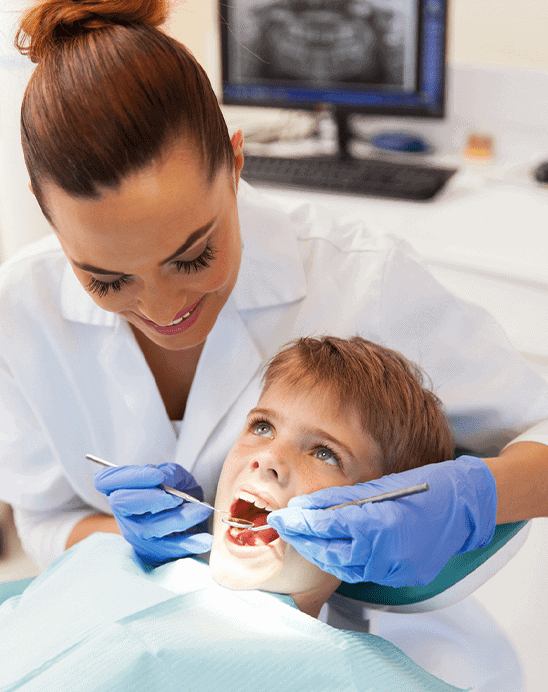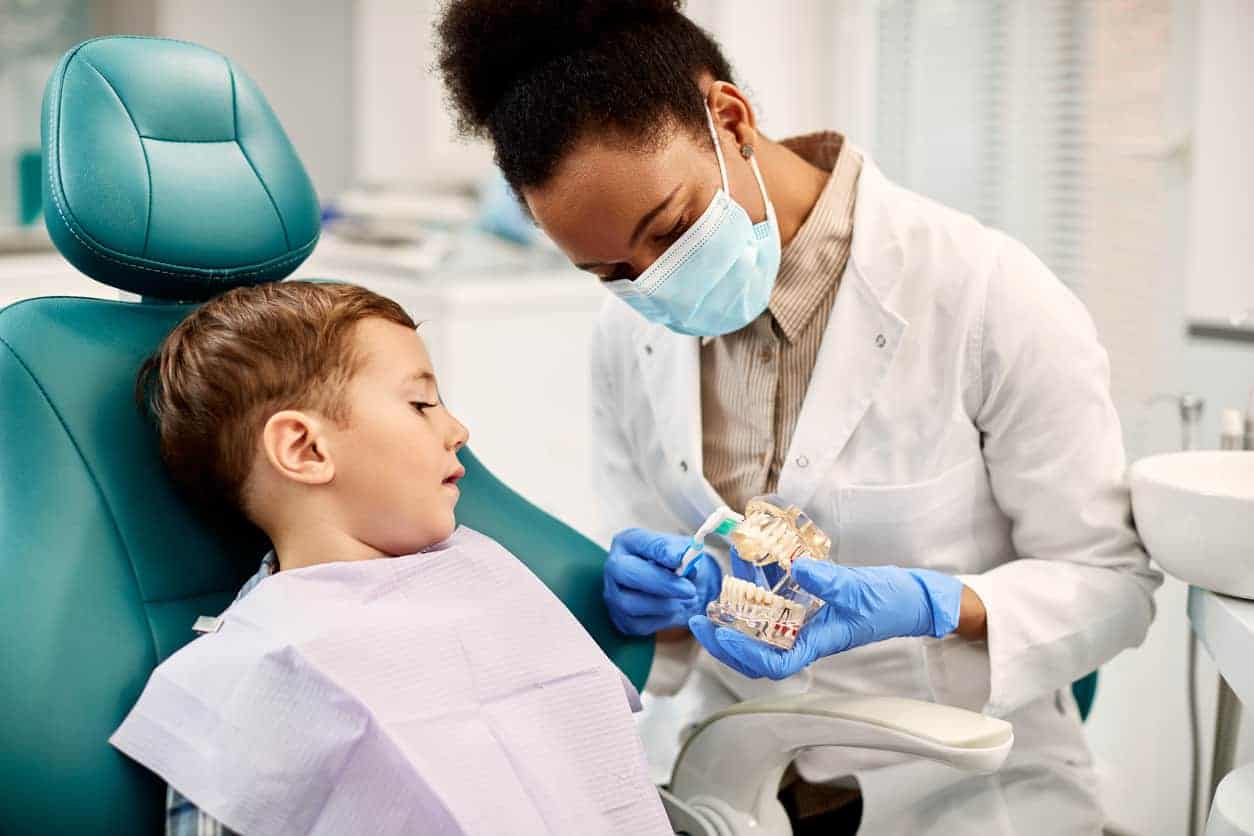
The first visit to the dentist
The Canadian Dental Association recommends that young children should be evaluated by a dentist within 6 months of the eruption of their first tooth, or at one year of age. This first visit is an important opportunity for your child to become familiar with the clinic environment. Your child will meet the dentist, who will examine him or her before any dental problems arise, and our team will review proper oral hygiene techniques to ensure that the right care is provided at home.
Preventive care for children
We often recommend treatments for children to prevent cavities and other oral problems. Combined with regular dental check-ups with our dentists, this preventive care helps to keep little ones’ smiles healthy as they grow. We particularly recommend the application of fluoride during routine check-ups for children aged 14 and under. By applying fluoride in varnish form, we can strengthen tooth enamel, making it more resistant to the acids and bacteria that cause cavities.
For some patients, we also recommend the application of dental sealants to fill the pits and grooves in the adult molars. These often accumulate food residues and bacteria, which is why cavities commonly form there. By applying sealant, we add a protective layer to the chewing surface to prevent cavities.


Early childhood caries
Baby bottle tooth disease, or early childhood caries, is a dental disease that affects children’s milk teeth. Since these teeth are more vulnerable to bacteria, cavities can appear as soon as a baby’s first teeth erupt. If not treated promptly, it can spread rapidly and lead to infection. Milk teeth are important because they guide adult teeth and guarantee sufficient space for their eruption. What’s more, an untreated decayed baby tooth can infect the developing of adult tooth below the gum line. Milk teeth are also essential for eating and learning to speak.
Here are a few tips to help prevent early childhood tooth decay
Brush your child’s teeth at least twice a day, especially before bedtime;
Limit sugary foods and drinks, such as candy and soft drinks;
Never add sugar or honey to pacifiers or bottle nozzles;
Don’t let your child sleep or walk around with a bottle or cup containing milk, juice or other sweet products, but rather take them at mealtimes or snacks;
Encourage your child to stop using a bottle at around 12 months of age;
Regularly check the appearance of his teeth, especially those at the back of his mouth, for white, yellowish or brownish stains near the gum line, as cavities often start there;
and finally, visit a dentist at least once a year.

Fluoride toothpaste for children?
For children aged zero to three, the use of fluoride toothpaste depends on the level of risk assessed by the dentist. If the child is at risk of tooth decay, he or she should be brushed by an adult using a very small amount of fluoride toothpaste (equivalent to the size of a grain of rice). Otherwise, teeth should be brushed with a toothbrush and water only.
For children aged three to six, the use of a small amount of fluoride toothpaste (equivalent to the size of a green pea) is recommended, and the child should be assisted by an adult in brushing.
If you have any questions about your child’s oral health, don’t hesitate to contact our team of professionals for answers and advice.
We accept new patients
Make an appointment now!
Call us at: (514) 363-7414

